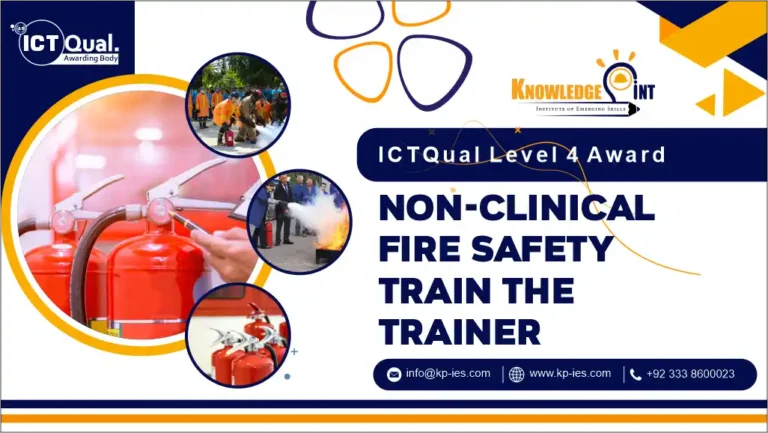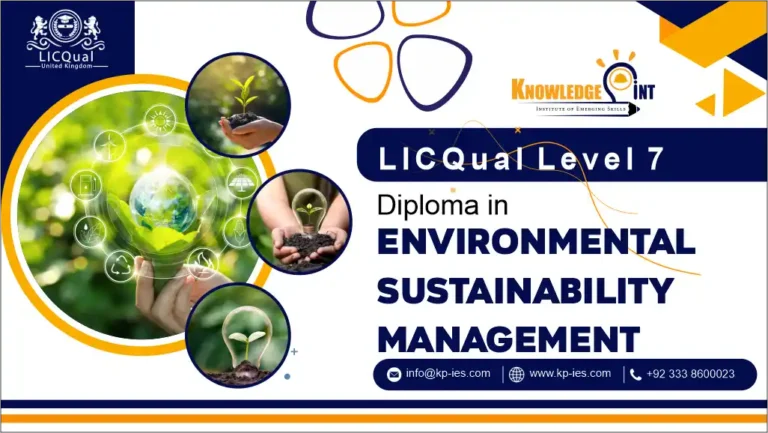In today’s world, environmental sustainability is not just a buzzword; it is a necessity. The LicQual Level 3 Diploma in Environmental Sustainability Management is designed for those who are passionate about making a positive impact on the environment and wish to build a foundation in sustainability practices. This blog post explores the benefits, key highlights, and potential future opportunities that come with completing this essential diploma.
The LicQual Level 3 Diploma in Environmental Sustainability Management is the perfect starting point for anyone interested in understanding and promoting sustainable practices. This course provides foundational knowledge and practical skills necessary to address environmental challenges and contribute to a greener future. Whether you are a recent school graduate, a professional seeking to enhance your skills, or someone considering a career change, this diploma offers a robust introduction to the field of sustainability.
The LicQual Level 3 Diploma in Environmental Sustainability Management is an excellent starting point for anyone looking to make a meaningful contribution to the environment. This course provides the foundational knowledge and practical skills necessary to understand and address environmental challenges. Whether you are just starting your career, looking to enhance your current role, or considering a career change, this diploma offers the tools and opportunities to succeed.
Course Overview
The LicQual Level 3 Diploma in Environmental Sustainability Management consists of 6 mandatory units which are as follows.
The learning outcomes of LicQual Level 3 Diploma in Environmental Sustainability Management include:
1. Environmental Policy and Legislation
- Understand Policy Frameworks: Gain a foundational understanding of national and international environmental policies, laws, and regulations.
- Analyze Legal Requirements: Analyze the basic legal requirements for environmental protection and sustainable practices.
- Comprehend Policy Development: Understand the process of environmental policy development and the role of various stakeholders.
- Advocate for Environmental Policy: Learn to advocate for effective environmental policies and compliance within organizations and communities.
2. Sustainable Resource Management
- Efficient Resource Use: Understand the principles of managing natural resources efficiently to minimize waste and environmental degradation.
- Apply Conservation Techniques: Learn basic conservation techniques and practices to protect and sustainably manage resources such as water, energy, and raw materials.
- Develop Management Plans: Develop simple sustainable resource management plans that balance economic, social, and environmental considerations.
- Assess Resource Impact: Understand how to assess the environmental impact of resource use and implement strategies to mitigate negative effects.
3. Environmental Impact Assessment
- Conduct Basic Assessments: Develop the skills to conduct basic environmental impact assessments (EIAs) for various small-scale projects and activities.
- Identify Environmental Impacts: Identify and evaluate potential environmental impacts of different activities and propose mitigation measures.
- Prepare EIA Reports: Learn to prepare and present straightforward EIA reports to stakeholders, including regulatory authorities and the public.
- Understand EIA Processes: Gain an understanding of the EIA process and its significance in sustainable development.
4. Climate Change Mitigation and Adaptation Strategies
- Understand Climate Science: Gain a basic understanding of the science behind climate change, including its causes and effects.
- Develop Mitigation Strategies: Learn simple strategies to reduce greenhouse gas emissions and mitigate the impacts of climate change.
- Plan Adaptation Measures: Understand how to design and implement basic adaptation measures to help communities and organizations cope with the impacts of climate change.
- Promote Climate Awareness: Learn to raise awareness about climate change and promote mitigation and adaptation strategies.
5. Corporate Social Responsibility
- Implement Basic CSR Programs: Learn to design and implement basic corporate social responsibility (CSR) programs that align with organizational goals and values.
- Engage with Stakeholders: Understand how to engage with stakeholders to promote and support CSR initiatives.
- Measure CSR Impact: Develop the ability to measure and report on the impact of CSR activities on the environment and society.
- Understand CSR Concepts: Gain a foundational understanding of CSR concepts and their importance in modern business practices.
6. Green Technology and Innovation
- Identify Green Technologies: Identify and understand basic green technologies that can support sustainable practices.
- Promote Technological Innovation: Foster a mindset of innovation that prioritizes the development and implementation of environmentally friendly technologies.
- Integrate Green Solutions: Learn to integrate simple green technology solutions into business operations to improve sustainability and efficiency.
- Evaluate Technology Benefits: Assess the environmental and economic benefits of various green technologies.
Course Benefits of the LicQual Level 3 Diploma in Environmental Sustainability Management :
1. Specialized Expertise
- Auditing Proficiency: Gain specialized knowledge and skills in auditing energy management systems according to the ISO 50001:2018 standard.
- Industry Recognition: Earn a globally recognized qualification that demonstrates your proficiency as an energy management systems auditor.
2. Career Advancement
- Expanded Career Opportunities: Qualify for roles such as Lead Energy Auditor, Energy Management Consultant, or Compliance Officer.
- Higher Earning Potential: Enhance your value to employers and increase your earning potential with specialized expertise in energy management auditing.
3. Industry-Relevant Skills
- Practical Application: Acquire practical skills and techniques for planning, conducting, and documenting energy management system audits.
- Effective Communication: Develop communication skills to interact with auditees, audit teams, and stakeholders effectively.
4. Contribution to Sustainability
- Promotion of Energy Efficiency: Play a key role in promoting energy efficiency and reducing environmental impact within organizations.
- Support for Sustainable Practices: Assist organizations in implementing and maintaining energy management systems that support sustainability goals.
5. Quality Assurance
- Compliance Assurance: Help organizations achieve compliance with ISO 50001:2018 requirements and other relevant regulatory standards.
- Risk Mitigation: Identify areas of non-conformance and provide recommendations for corrective actions to mitigate risks.
6. Continuous Professional Development
- Lifelong Learning: Engage in continuous professional development by staying updated with the latest developments and trends in energy management auditing.
- Networking Opportunities: Connect with industry professionals, auditors, and experts, expanding your professional network and opportunities.
7. Organizational Benefits
- Improved Performance: Contribute to the improvement of organizational energy performance through effective auditing and recommendations for continuous improvement.
- Enhanced Reputation: Help organizations build a positive reputation for their commitment to energy management and sustainability practices.
8. Personal Growth
- Leadership Development: Develop leadership skills to effectively manage audit teams, delegate tasks, and ensure audit objectives are met.
- Confidence Boost: Gain confidence in your abilities as an energy management systems auditor through practical training and hands-on experience.
Completing the LicQual Level 3 Diploma in Environmental Sustainability Management opens numerous pathways for further education, career advancement, and professional development. Here are some potential future progression opportunities:
1. Advanced Diplomas and Higher Education
- Level 4 Diploma in Environmental Sustainability Management: Build on the foundational knowledge gained at Level 3 by enrolling in a Level 4 Diploma, which delves deeper into environmental sustainability concepts and practices.
- Level 5 Diploma in Environmental Sustainability Management: Continue your education with a Level 5 Diploma, offering more specialized knowledge and advanced skills in sustainability management.
- Higher Education Degrees: Pursue an undergraduate degree in Environmental Science, Sustainability, Environmental Management, or a related field to further enhance your expertise and qualifications.
2. Professional Certifications
- Certified Sustainability Practitioner (CSP): Obtain CSP certification to validate your expertise and commitment to sustainability.
- LEED Green Associate: Start your journey towards becoming a LEED Accredited Professional by obtaining the LEED Green Associate credential, which focuses on green building practices and sustainable design.
- ISO 14001 Certification: Learn about and obtain certification in ISO 14001, which focuses on environmental management systems and standards.
3. Career Opportunities
- Entry-Level Positions: Explore entry-level roles in environmental consulting, sustainability coordination, resource management, and more.
- Junior Environmental Officer: Start a career as a junior environmental officer, assisting in the implementation of sustainability initiatives and compliance with environmental regulations.
- Sustainability Coordinator: Work as a sustainability coordinator, helping organizations develop and execute sustainability strategies.
4. Specialized Roles and Fields
- Resource Management Specialist: Focus on managing resources efficiently and sustainably within various industries.
- Climate Change Assistant: Work as an assistant in climate change projects, helping to develop and implement mitigation and adaptation strategies.
- Corporate Social Responsibility (CSR) Assistant: Assist in the design and implementation of CSR programs within organizations, promoting sustainable and ethical business practices.
5. Further Training and Development
- Workshops and Seminars: Participate in workshops, seminars, and short courses to stay updated with the latest trends and advancements in sustainability.
- Online Courses: Enroll in online courses to gain additional skills and knowledge in specific areas of interest, such as renewable energy, waste management, or sustainable agriculture.
- Industry Conferences: Attend industry conferences and networking events to connect with professionals and stay informed about emerging practices and technologies in sustainability.
6. Entrepreneurial Ventures
- Sustainability Consulting: Start your own consulting business, offering expertise in environmental sustainability to help organizations achieve their green goals.
- Green Startups: Launch a startup focused on innovative green technologies or sustainable products and services.
7. Global Opportunities
- International Organizations: Work with international organizations like the United Nations, World Wildlife Fund (WWF), or other NGOs focused on global environmental issues and sustainable development.
- Cross-Border Projects: Engage in cross-border sustainability projects, addressing environmental challenges on a global scale and collaborating with diverse stakeholders.
8. Leadership and Advocacy
- Environmental Advocate: Advocate for environmental causes, raising awareness and influencing public policy through speaking engagements, writing, and activism.
- Community Leadership: Take on leadership roles in community organizations, driving local sustainability initiatives and projects.
The LicQual Level 3 Diploma in Environmental Sustainability Management is a crucial stepping stone towards a rewarding and impactful career in sustainability. Graduates of this program are well-equipped to pursue a variety of advanced educational opportunities, professional certifications, and career paths in the dynamic and growing field of environmental sustainability. Whether you aim to further your education, advance in your career, or explore new professional avenues, this diploma provides the knowledge, skills, and credentials needed to succeed and make a positive impact on the environment. Embrace the future progression opportunities and become a leader in driving sustainable change.







